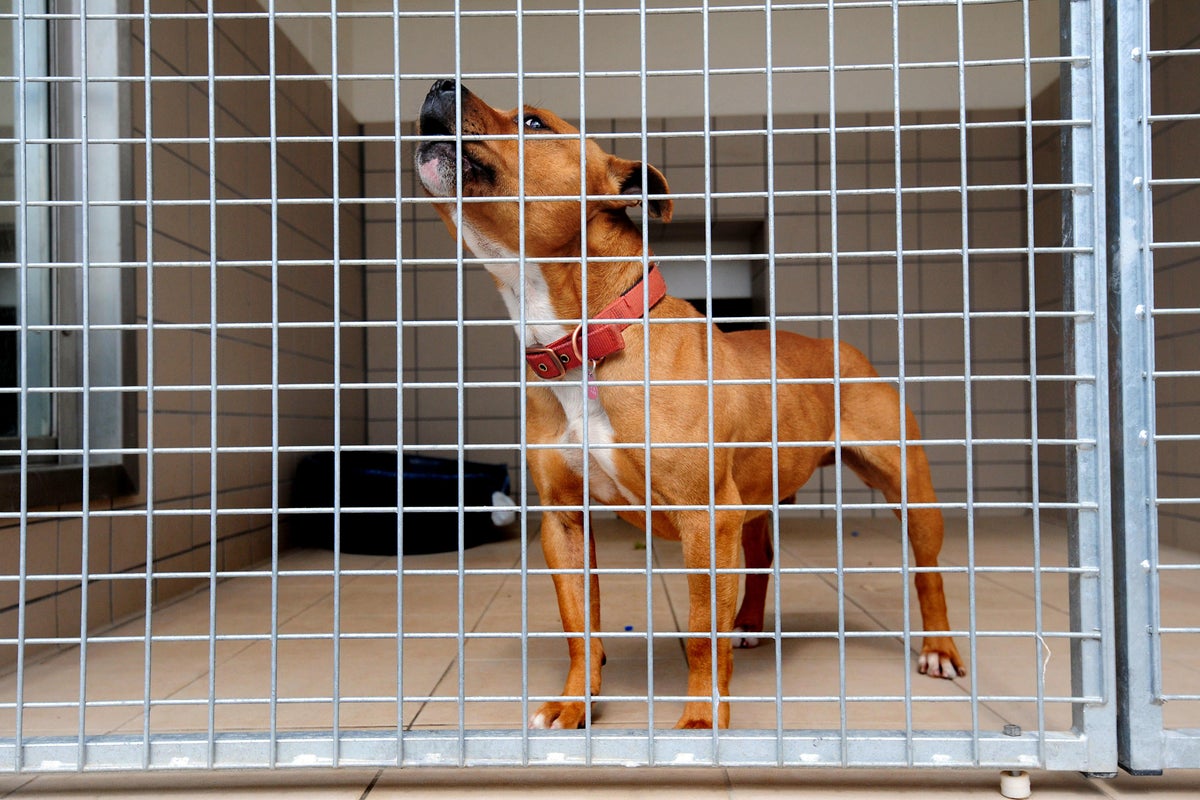
An animal charity has called for stricter regulations on animal rescues importing dogs into the UK, citing concerns about disease risks and behavioural issues
Government statistics reveal that in 2023, 320,000 pets were brought into the UK under travel pet schemes and 44,000 entered as commercial imports.
RSPCA spokesman David Bowles likened the process to “Deliveroo for dogs” and called on the Government to tighten regulations on animal rescues.
He told the BBC: “The RSPCA’s major concern is these dogs are essentially ticking time bombs – coming over, not being health tested.
“Diseases are now coming in through these dogs. They’re affecting not just the dogs that are being imported, they could also affect the dogs already in this country and their owners.
“They’ve almost set up a Deliveroo for dogs and that is a real problem.”
There is no requirement for rescue organisations to be licensed in England, Wales or Northern Ireland.
It comes weeks after a bill that aims to stop animal smuggling and cruelty cleared the Commons with cross-party support.
Legislation put forward by Liberal Democrat MP Dr Danny Chambers will reduce the number of animals for non-commercial entry into the UK, ban the import of puppies and kittens under six months old or heavily pregnant dogs and cats, and introduce a halt on the import of dogs and cats who have been “mutilated”, including having their ears docked.
The MP for Winchester’s Animal Welfare (Import of Dogs, Cats and Ferrets) Bill was supported by the Government, and will now proceed to the House of Lords on its passage to becoming law.
Dr Chambers said: “As a vet, I’ve seen the devastating consequences of puppy smuggling. It’s unimaginably cruel to separate puppies and kittens from their mothers at a very young age, and then bring them across borders in substandard conditions where they’re then sold for maximum profit by unscrupulous traders who prioritise profit over welfare.”
He added: “Careful consideration has been given to setting these limits, balancing the need to disrupt illegal trade with minimising impact on genuine pet owners. To underpin this, only an owner, not an authorised person, will be permitted to sign and declare that the movement of a dog or cat is non-commercial.
He criticised the influence of social media on the increased demand for dogs with docked ears, and a party colleague hit out at the platforms’ role in publishing animal abuse.
He said: “One reason that there is such an interest in dogs with cropped ears is that a lot of influencers on Instagram and other social media platforms pose with these dogs or show they have these new dogs with cropped ears. Many people aren’t aware that this is a mutilation.
“They think it’s how the dogs’ ears normally look, and it drives a demand for dogs that look like this.”
